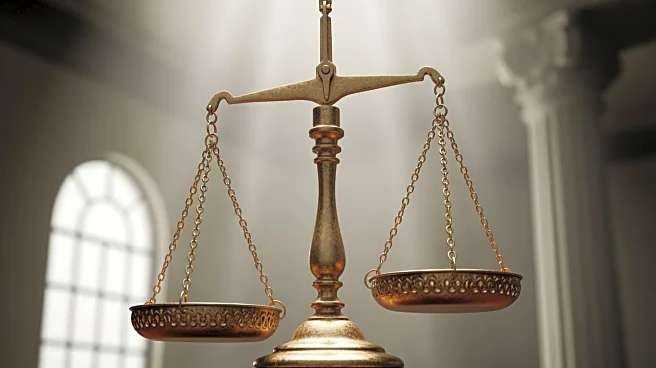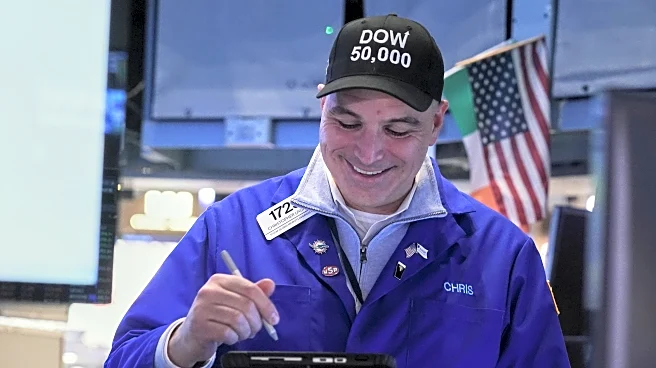What's Happening?
During a Supreme Court hearing, Justice Amy Coney Barrett engaged in a notable exchange with Solicitor General D. John Sauer regarding President Trump's use of emergency powers to impose global tariffs.
Barrett questioned the interpretation of the 1977 International Emergency Economic Powers Act (IEEPA), which Sauer argued allowed the president to regulate importation by imposing duties. Barrett challenged this view, suggesting it could transform a narrow statute into a broad taxing power without clear congressional authorization. The case, Trump v. V.O.S. Selections, will determine the extent of presidential authority under IEEPA, with implications for the balance of power between the White House and Congress.
Why It's Important?
The Supreme Court's decision in Trump v. V.O.S. Selections could significantly impact presidential powers, particularly in reshaping U.S. trade and economic policy. If the Court upholds the tariffs, it would affirm broad presidential authority over economic matters, potentially altering the balance of power between the executive and legislative branches. Conversely, a ruling against the tariffs could limit the use of emergency powers, requiring explicit congressional authorization for major economic actions. This case tests the consistency of the Court's conservative justices in applying limits to executive authority, regardless of the president's political affiliation.
What's Next?
The Supreme Court is expected to issue a decision before the end of the year. If the Court upholds President Trump's tariffs, it could lead to expanded presidential authority over trade, maintaining nearly $200 billion in revenue from these tariffs. A ruling against the tariffs might force the government to refund billions to importers and set new limits on presidential emergency powers. The decision will also test the Court's application of the 'major questions' doctrine, which requires clear congressional authorization for executive actions with significant economic impact.
Beyond the Headlines
The case highlights the tension between judicial independence and political alignment, as conservative justices appointed by President Trump challenge his administration's expansive interpretation of presidential power. It underscores the importance of the constitutional separation of powers and the role of the judiciary in curbing executive overreach. The outcome could influence future administrations' use of emergency powers and the legislative branch's role in major policy decisions.










